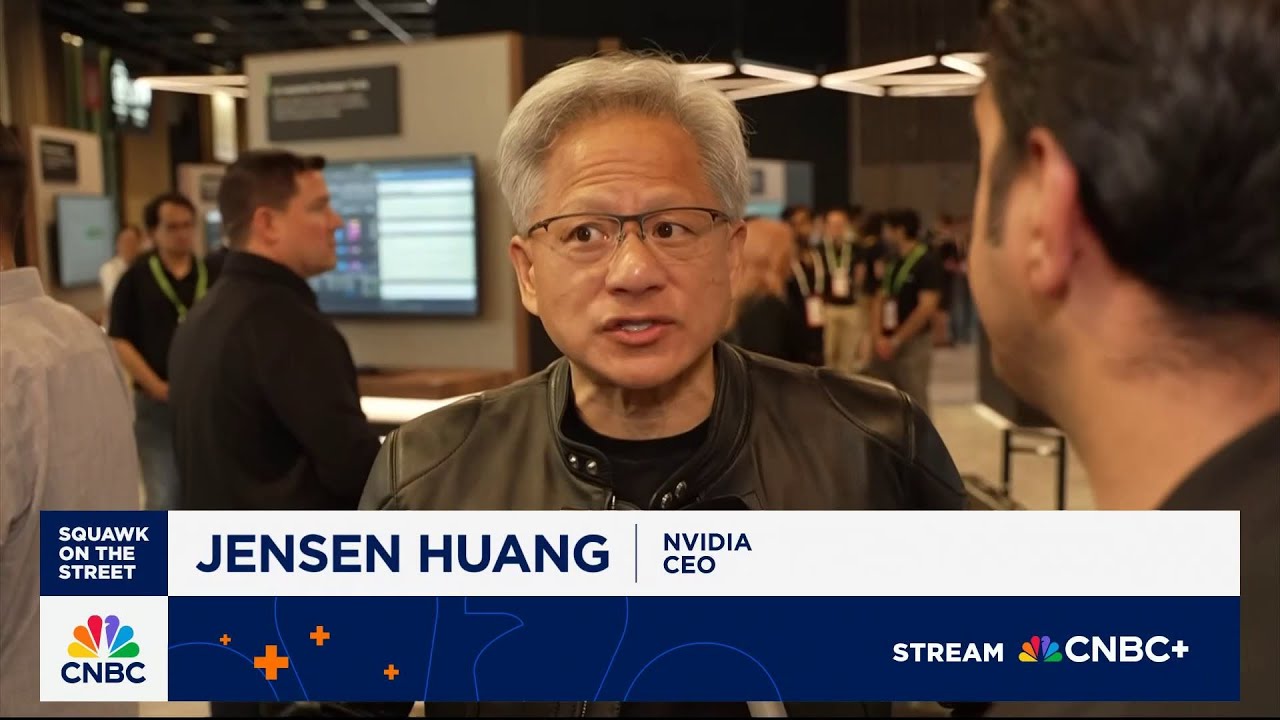Nvidia CEO Jensen Huang warns that U.S. restrictions on Chinese tech companies like Huawei could unintentionally boost China’s AI development and threaten U.S. leadership in the industry. He emphasizes the need for strategic policies that balance national security with fostering innovation to prevent China from becoming self-sufficient and dominant in AI.
The video features an interview with Nvidia CEO Jensen Huang, who discusses the current state of the global AI industry and the impact of U.S. restrictions on Chinese technology companies. Huang highlights the recent surge of interest in Nvidia across Europe, with multiple deals and infrastructure projects announced in cities like London and Paris. Despite these regional developments, his focus remains on the broader geopolitical and technological competition, particularly between the U.S. and China.
Huang emphasizes that U.S. chip restrictions, such as those affecting Huawei and other Chinese firms, could inadvertently benefit China’s AI ambitions. He warns that if China continues to develop and diffuse its AI technology independently, it could dominate the global AI landscape. Huang suggests that the U.S. needs to be mindful of the long-term consequences of current policies, as isolating American firms from Chinese markets might lead to a scenario where China’s AI ecosystem becomes self-sufficient and more advanced.
The CEO underscores the importance of U.S. leadership in the AI race, framing it as a matter of national and technological security. He states that if all AI development shifts to China, the U.S. risks losing its competitive edge and influence in the global AI industry. Huang sees this as a critical issue that requires informing policymakers about the nature of AI technology and industry dynamics, and supporting U.S. efforts to maintain technological leadership.
Regarding Huawei, Huang comments on the Chinese company’s efforts to develop rival chips to Nvidia. While Huawei’s founder has downplayed Huawei’s progress in AI chips, Huang believes Huawei is only about a generation behind Nvidia. He suggests that Huawei is actively working to catch up and develop its own AI hardware, which could pose a significant challenge if Nvidia is unable to participate fully in the Chinese market due to restrictions.
Overall, Huang’s message is that the current U.S. restrictions and geopolitical tensions could have unintended consequences, potentially empowering China’s AI capabilities at the expense of American leadership. He advocates for a strategic approach that balances national security with the need to foster innovation and maintain a competitive edge in the rapidly evolving AI industry.
